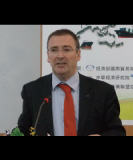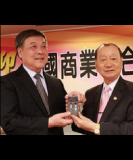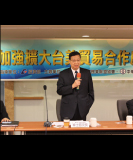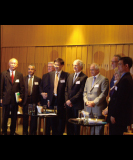You are browsing > Service in Taiwan > Development
Members debate way forward on non-violation complaints at TRIPS CouncilWTO
WTO members could not agree on a way forward regarding non-violation complaints at the meeting of the Council for Trade-Related Aspects of Intellectual Property Rights (TRIPS) on 17-18 October. Following up on previous discussions, WTO members also broadened their debate on the relation between IP and innovation, and IP and the public interest. Also, for the first time, they discussed how best to ensure an inclusive approach to transparency notification requirements in the WTO
Non-violation and situation complaints
The issue of non-violation and situation complaints, mandated for discussion in the TRIPS Council by successive Ministerial Conferences, concerns the longstanding issue of whether members should have the right to bring dispute cases to the WTO if they consider that another member's action or a specific situation has deprived them of an expected benefit under the TRIPS Agreement, even if no specific TRIPS obligation has been violated. At the 11th Ministerial Conference in Buenos Aires in December 2017, ministers agreed to once again extend the moratorium on using TRIPS non-violation complaints until the 12th Ministerial Conference (MC12), which was originally foreseen to take place in 2019.
At the General Council meeting in July 2018, the chair noted that the 2019 deadline would be maintained, notwithstanding the decision to hold the 12th Ministerial Conference in Nur-Sultan, Kazakhstan, in June 2020. The issue was discussed again on 15 October this year at the General Council, where Chile, Colombia, New Zealand and Panama submitted a recommendation to reconsider that deadline and extend the moratorium until MC12. Several members backed this recommendation at the TRIPS Council, while others reiterated their preference for the moratorium to expire by the end of 2019 as initially envisaged.
In light of this, the chair kept the agenda item open while she continues consultations to facilitate an agreement. Once the possibility of reaching consensus is achieved, she will reconvene the suspended Council meeting at short notice so that a recommendation could be made in time for the last General Council meeting of the year, scheduled for 9-11 December.
IP and innovation: public-private collaborations in innovation
Following up on past items on IP and innovation regularly added to the TRIPS Council agenda since 2012, the co-sponsors (Australia, Canada, Chile, Chinese Taipei, the European Union, Hong Kong China, Japan, Singapore, Switzerland and the United States) invited members to share experiences and further examples of initiatives that support and facilitate the commercialization of IP across a wide range of industries and sectors. They highlighted that, through the commercialization of IP, inventors and creators, academics, students and entrepreneurs can reap the benefits of their knowledge, creativity and hard work, while ensuring that those providing financial support in this process can gain returns on their investment.
A variety of diverse public-private collaborations providing an opportunity for both parties to leverage resources, capacities, skills and expertise in order to commercialize IP and bring products to the market were discussed, as well as the various mechanisms within the framework of these partnerships that can facilitate IP commercialization — licensing, joint ventures, and public procurement for innovation.
The proponents highlighted the example of academic spin-offs, which are becoming increasingly popular vehicles for driving innovation and the direct commercialization of publicly funded research and development (R&D) for the benefit of the public. These platforms also allow students to move beyond the academic world towards becoming innovators and entrepreneurs, converting their ideas into tangible products and services, they added. At the same time, strategic IP management can raise revenues for universities boosting further R&D, attracting potential industry sponsors and investors and fostering reputation and partnership opportunities.
In sum, proponents said, IP commercialization not only allows for state-of-the-art technologies and creations to be made available to the whole of society in the form of new products and services to market, but also facilitates job creation, prosperity, and societal progress.
China, Brazil, Costa Rica, Norway, South Africa and Ukraine joined the co-sponsors in sharing their experiences on what role governments and policy makers can play in linking companies and universities on the one hand, and investors on the other hand, as well as success stories of IP commercialization. Some IP-related measures were particularly successful in supporting stakeholders who may have lacked necessary resources and expertise in this field. Members also identified the severe shortage of human resources for R&D as a fundamental constraint to economic growth and research and development. They noted the existing gap in national innovation systems, where most of the research outputs have not been translated into commercially viable products and services or the creation of new industries.
IP and the public interest: R&D costs and pricing of medicines and health technologies
At the proposal of South Africa, the Council continued its debate on the intersection between IP and the public interest. Underlining that the public interest is a central component of the TRIPS Agreement, South Africa added that the protection and enforcement of intellectual property rights (IPRs) should not be an end in itself but a means to contribute to the promotion of technological innovation and the transfer and dissemination of technology to the advantage of all stakeholders in a manner conducive to social and economic welfare.
South Africa called on WTO members to commit to the full use of the flexibilities in the TRIPS Agreement to increase access to affordable, safe, effective and quality medicines, noting that the current model of medical innovation is ill-equipped to respond to the increasing emergence of infectious diseases, the unprecedented explosion of non-communicable diseases (NCDs), and neglected tropical diseases. Developing and least developed countries affected by inadequate funding for R&D and access to health technologies and medicines continue to struggle to ensure access to affordable medicine for their citizens, and developed countries are increasingly raising similar concerns, it said.
South Africa invited members to share experiences on how TRIPS flexibilities have been used to address high prices and barriers to access to medical technologies and medicines in order to achieve public health and related national objectives and considered that competition policy remains a relevant tool to address abuse of IPRs, and to ensure cheaper and more effective access.
According to South Africa, pricing policies of private companies remain opaque in many cases while the true cost of R&D for pharmaceuticals is often unknown and highly variable, with a significant proportion of the expenditure dedicated to marketing and promotional activities, rather than costs directly related to the development of the product. Companies in the health technology sector, South Africa added, achieve market dominance through various means, including IP protection, that keeps generic or biosimilar competitors out of the market for varying periods, depending on the jurisdiction.
Other members noted that international obligations such as those in the TRIPS Agreement have sufficient flexibility to allow trading partners to address serious public health problems that they may face. They highlighted the patent system’s vital role in promoting the development and creation of new and innovative life-saving medicines and urged other members to consider ways to address their public health challenges, while also maintaining IP systems that promote innovation. While recognizing the importance of medicine pricing, these members considered that it is not an appropriate topic for TRIPS as there are many factors to be taken into consideration, such as the existence of regulatory barriers, taxes, tariff policies, procurement mechanisms, the increase in the production, sale and use of substandard fake counterfeit medicines or a context of complex supply chains.
They added that without patent protection, especially for pharmaceutical research into new drugs, new uses for existing drugs and improvements to existing drugs would dramatically decline, and that it is necessary to look at the whole picture in order to improve the situation. According to these members, a narrow focus on patent rights as ostensibly obstructing the availability of reasonably priced medicines would distort a complex and multifaceted picture, leaving out many factors that are fundamental in addressing pricing and access to medicines issues.
Inclusive approach to transparency and notification requirements
The African Group, Cuba, India and Oman noted that transparency remains an important issue within the operation and monitoring function of the WTO, and discussion of this in the TRIPS Council complements similar discussions taking place in other WTO bodies. These members argued that while developing countries often struggle to comply with notification obligations due to capacity and resource constraints, developed countries in many instances do not comply with such obligations or do so selectively. They indicated that the capacity of developing members to comply with this obligation is inextricably linked with their level of economic development and access to resources, and urged developed members to not underestimate their capacity and resource constraints.
In their view, any work in this area should be on supporting and incentivizing developing countries to address these issues, especially as it relates to transparency obligations. Existing notification obligations should be calibrated so that they are commensurate with members' level of development, they added, and developing members, small and vulnerable economies (SVEs) and least-developed countries (LDCs) should not be expected to take on notification obligations which are beyond their capacities, or be subjected to any transparency obligations which go beyond existing obligations.
Other members took the floor to welcome this discussion at the TRIPS Council and to acknowledge the challenge of keeping up-to-date with the resource-intensive obligation of notifications. As stressed previously in the Council for Trade in Goods, developed members underlined the urgent need to address deficiencies and gaps in notifications and transparency that seriously undermine the proper functioning and operation of the WTO agreements. They said it is time to move the debate from the meta level to a more down-to-earth level that permits obtaining concrete commitments in this regard.
Under the regular agenda item on TRIPS notifications, the Council's chair, Ambassador Lundeg Purevsuren of Mongolia, said that notifications to the Council are not keeping up with the actual development of laws and regulations relating to TRIPS. He emphasized that Article 63.2 of the TRIPS Agreement is not a one-off requirement, but a core element of the TRIPS transparency arrangements and a central part of the Council's substantive work, and that it obliges members to notify any new or amended laws. Therefore, he urged members to complete any outstanding initial notifications, and to keep up to date with notifications on subsequent amendments. The same applies to the Checklist of Issues on Enforcement which was established by the Council as an element of members' notification obligations.
He also encouraged members to notify legislative changes made to implement the special compulsory licensing system to export medicines covered by the new Article 31bis of the TRIPS Agreement. More than 50 WTO members, including many of the world's major exporters of medicines, have adopted implementing legislation that allows them to use the system as exporters and/or importers, but only 19 members, including the European Union, have formally notified such measures to the TRIPS Council.
The chair underscored that the new e-TRIPS platform now makes it much easier to fulfil transparency obligations. Members attended a lunch-time briefing on the e-TRIPS gateway, the online database of the full range of TRIPS-related information managed by the Secretariat that enables easy search and analysis of TRIPS data.
Incentives for technology transfer to least-developed countries
The Council reviewed updated reports from a number of members under Article 66.2, which calls on developed countries to provide incentives to enterprises and institutions in their territories for the purpose of promoting and encouraging technology transfer to least-developed countries in order to enable them to create a sound and viable technological base. Some members discussed how to improve the function of the mechanism, including the proposal to designate focal points for technology transfer in both developed country and LDC members.
The WTO Secretariat is once again planning an Annual Workshop on Article 66.2, as a follow-up to this year's event, to be held back-to-back with the next TRIPS Council meeting in early February 2020. The workshop will comprise two days of sessions on 4-5 February and a reporting and review session within the TRIPS Council on 6 February. Between now and then, LDCs will have sufficient time to absorb the information provided by developed countries and, as on previous occasions, the workshop will provide members with the opportunity for concrete exchanges between cooperation partners, and to deepen the dialogue on incentives for transfer of technology to respond to the needs identified by least-developed countries.









